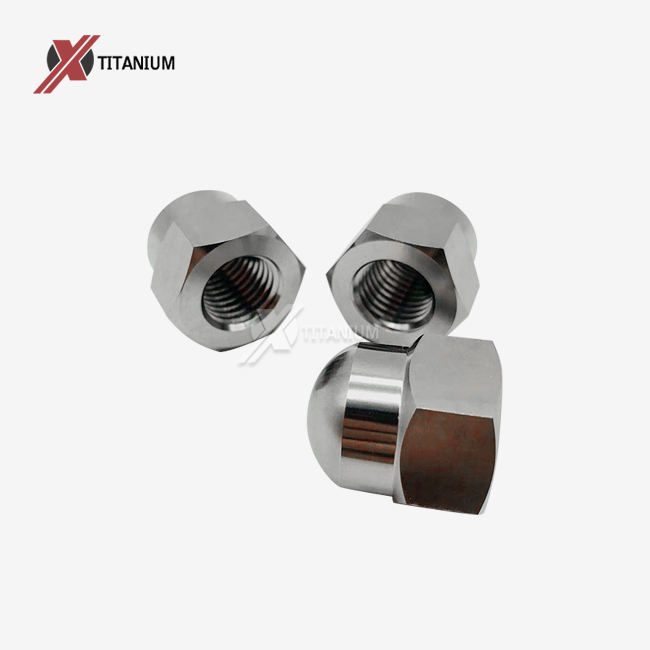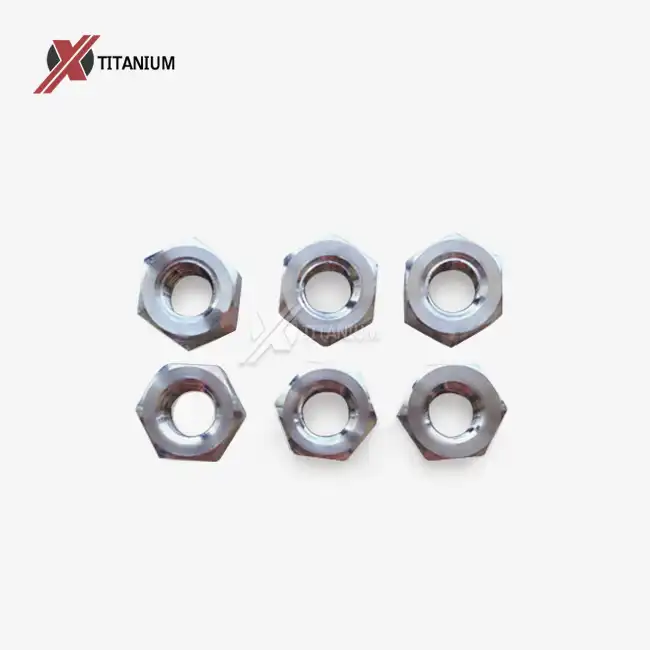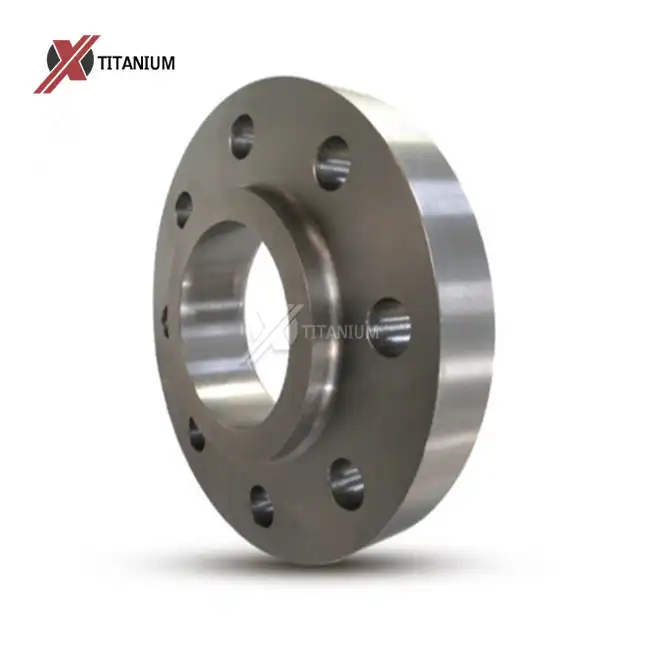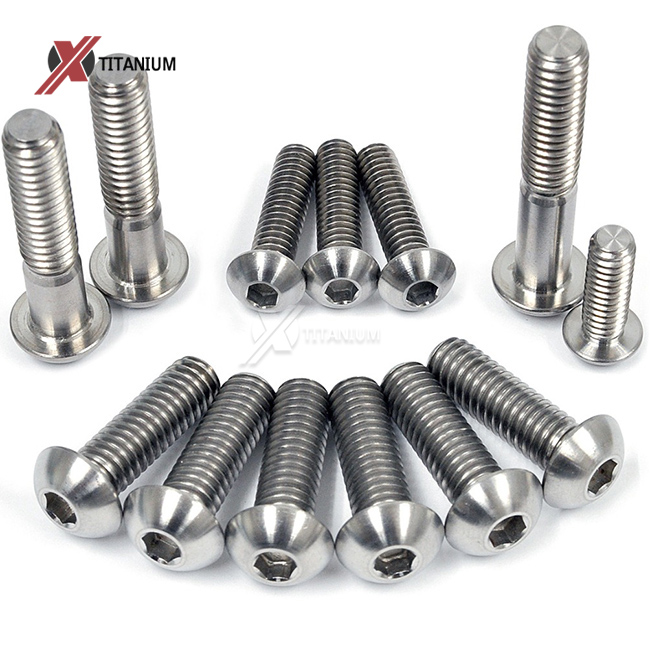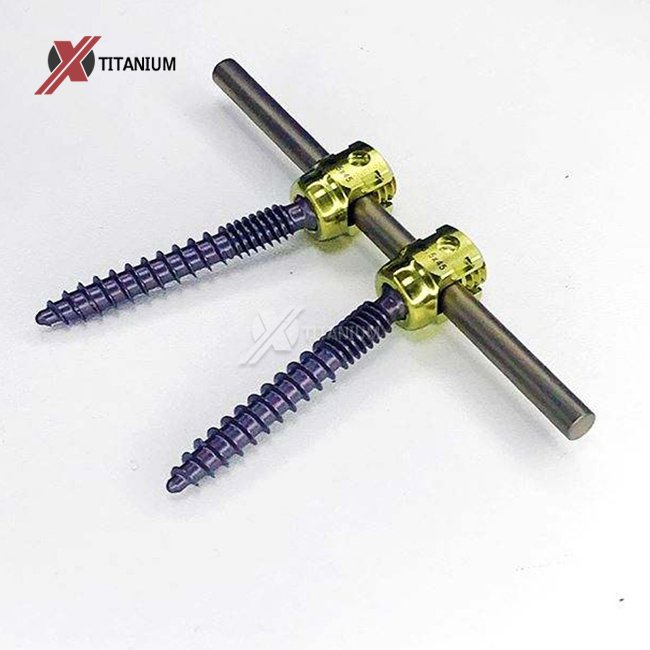The Advantages of Titanium Acorn Nuts in Modern Engineering
Titanium acorn nuts have become increasingly popular in various industries due to their unique combination of properties. These fasteners offer a remarkable blend of strength, lightness, and durability that sets them apart from traditional materials like steel or aluminum. The use of titanium in acorn nuts brings several key advantages to the table.
One of the most significant benefits of titanium acorn nuts is their exceptional strength-to-weight ratio. Titanium is known for its high tensile strength, comparable to that of steel, while being about 45% lighter. This characteristic makes titanium acorn nuts particularly valuable in applications where weight reduction is crucial, such as in aerospace or automotive engineering. By utilizing these lightweight fasteners, designers can significantly reduce the overall mass of a structure or vehicle without compromising on structural integrity.
Another compelling advantage of titanium acorn nuts is their outstanding corrosion resistance. Titanium naturally forms a protective oxide layer when exposed to air, making it highly resistant to various forms of corrosion, including saltwater environments. This property ensures that titanium acorn nuts maintain their strength and functionality over extended periods, even in harsh conditions. Industries such as marine engineering and chemical processing benefit greatly from this feature, as it reduces maintenance requirements and extends the lifespan of equipment.
Biocompatibility is yet another attribute that sets titanium acorn nuts apart. Titanium is well-known for its ability to integrate with human tissue without causing adverse reactions. This property makes titanium acorn nuts an excellent choice for medical applications, particularly in orthopedic implants and dental prosthetics. The use of these fasteners in medical devices ensures a lower risk of rejection by the body and promotes better healing outcomes.
The thermal properties of titanium also contribute to the appeal of titanium acorn nuts. With a low thermal expansion coefficient, these fasteners maintain their dimensions and fit even under significant temperature fluctuations. This stability is particularly valuable in aerospace applications, where components are subjected to extreme temperature variations.
Lastly, the durability of titanium acorn nuts translates to long-term cost-effectiveness. While the initial investment in titanium fasteners may be higher than that of steel or aluminum alternatives, their longevity and reduced maintenance requirements often result in lower total lifecycle costs. This makes them an attractive option for projects where long-term performance and reliability are paramount.
Applications Across Industries
The versatility of titanium acorn nuts has led to their adoption across a wide range of industries. In aerospace, these fasteners are used in aircraft structures, engine components, and satellite systems, where their light weight and high strength are crucial. The automotive sector employs titanium acorn nuts in high-performance vehicles, racing applications, and increasingly in electric vehicles to reduce overall weight and improve efficiency.
In the marine industry, titanium acorn nuts find use in shipbuilding, offshore platforms, and underwater equipment due to their exceptional corrosion resistance. The medical field utilizes these fasteners in surgical instruments, implants, and prosthetics, capitalizing on titanium's biocompatibility and strength.
The chemical and petrochemical industries benefit from the corrosion resistance of titanium acorn nuts in pipelines, valves, and processing equipment. In renewable energy, these fasteners are employed in wind turbines and solar panel mounting systems, where durability and weather resistance are essential.
Enhancing Performance: Polished, Anodized, and Coated Finishes
The surface treatment of titanium acorn nuts plays a crucial role in enhancing their performance and expanding their applications. Polished, anodized, and coated finishes each offer unique benefits that cater to specific industry needs and aesthetic preferences.
Polished titanium acorn nuts boast a smooth, reflective surface that not only looks sleek but also serves functional purposes. The polishing process removes surface imperfections, reducing the risk of stress concentration points and potentially enhancing the fatigue life of the fastener. Additionally, the smooth surface of polished titanium acorn nuts can improve corrosion resistance by minimizing areas where corrosive agents might accumulate.
Anodizing is an electrochemical process that creates a durable, adherent oxide layer on the surface of titanium acorn nuts. This treatment enhances the already impressive corrosion resistance of titanium and can also be used to create a range of vibrant colors. Anodized titanium acorn nuts are not only more resistant to wear and corrosion but can also be color-coded for easy identification in complex assemblies. The anodized layer also provides electrical insulation, which can be beneficial in certain applications.
Coated finishes for titanium acorn nuts offer perhaps the most versatile range of performance enhancements. Depending on the coating material and method, these finishes can provide additional corrosion protection, reduce friction, enhance wear resistance, or even provide thermal insulation. Common coating materials include PTFE (Teflon), which offers excellent lubricity and chemical resistance, and ceramic coatings, which can significantly improve wear resistance and thermal properties.
Choosing the Right Finish
Selecting the appropriate finish for titanium acorn nuts depends on the specific requirements of the application. For instance, in aerospace applications where weight is critical and visual appeal is less important, a simple polished finish might be sufficient. In contrast, medical implants might benefit from anodized finishes that can reduce friction and enhance biocompatibility.
In harsh chemical environments, a combination of polishing and specialized coatings might provide the best protection against corrosion. For applications involving high temperatures or extreme wear, ceramic coatings on polished surfaces could offer optimal performance.
Manufacturing Processes and Quality Control for Titanium Acorn Nuts
The production of high-quality titanium acorn nuts involves sophisticated manufacturing processes and rigorous quality control measures. Understanding these aspects is crucial for engineers and procurement specialists to ensure they source fasteners that meet their specific requirements.
The manufacturing process for titanium acorn nuts typically begins with the selection of the appropriate grade of titanium. Grade 5 titanium (Ti-6Al-4V) is commonly used due to its excellent balance of strength, machinability, and corrosion resistance. The raw material is usually in the form of titanium rods or bars.
CNC (Computer Numerical Control) machining is the preferred method for producing titanium acorn nuts. This process allows for high precision and consistency in manufacturing. The titanium stock is first cut to the appropriate length, and then the hexagonal head is formed. The internal threads are then cut using specialized taps designed for titanium, which is known for its tendency to gall or seize during threading operations.
After the basic shape and threads are formed, the acorn nut undergoes a series of finishing operations. These may include deburring to remove any sharp edges, polishing to achieve the desired surface finish, and cleaning to remove any machining oils or debris.
For anodized or coated finishes, additional steps are required. Anodizing involves immersing the titanium acorn nuts in an electrolytic bath and passing an electric current through them to create the oxide layer. The voltage and time of the process determine the thickness of the oxide layer and the resulting color. Coating processes vary depending on the type of coating but may involve techniques such as physical vapor deposition (PVD) or plasma spraying.
Quality Control Measures
Quality control is paramount in the production of titanium acorn nuts, especially for critical applications in aerospace or medical fields. Manufacturers employ a range of testing and inspection methods to ensure the fasteners meet required specifications. Dimensional inspection is performed using precision measuring tools such as micrometers and thread gauges to verify that the nuts meet specified tolerances. This includes checking the thread pitch, major and minor diameters, and overall dimensions.
Material composition is verified through spectrographic analysis to ensure the correct grade of titanium is used. This is crucial as different titanium alloys have varying properties that can significantly affect performance. Mechanical testing may include tensile strength tests, hardness tests, and fatigue testing to verify that the acorn nuts meet strength requirements. For applications involving extreme temperatures, thermal cycling tests may also be conducted.
Certification and Standards
Titanium acorn nuts are often manufactured to meet specific industry standards. For instance, aerospace-grade fasteners might need to comply with AS9100 quality management systems or specific military specifications. Medical-grade fasteners may require compliance with ISO 13485 for medical devices.
Manufacturers typically provide material certifications and test reports with each batch of titanium acorn nuts. These documents verify the material composition, mechanical properties, and conformance to specified standards, providing assurance to end-users of the fasteners' quality and suitability for their intended application.
Conclusion
Titanium acorn nuts represent a significant advancement in fastener technology, offering a unique combination of strength, lightness, and durability. Their versatility, enhanced by various finishing options such as polishing, anodizing, and coating, makes them invaluable across a wide range of industries. From aerospace to medical applications, these specialized fasteners continue to push the boundaries of what's possible in engineering and design.
For those seeking to leverage the benefits of titanium acorn nuts in their projects or products, it's crucial to partner with experienced manufacturers who understand the nuances of working with titanium and can provide fasteners that meet the highest quality standards. By choosing the right titanium acorn nuts with appropriate finishes, engineers and designers can enhance the performance, durability, and efficiency of their creations.
If you're interested in exploring how titanium acorn nuts can benefit your specific application or if you need more information about our range of titanium products, don't hesitate to reach out to us at info@cltifastener.com or djy6580@aliyun.com. Our team of experts is ready to assist you in finding the perfect titanium fastening solution for your needs.
